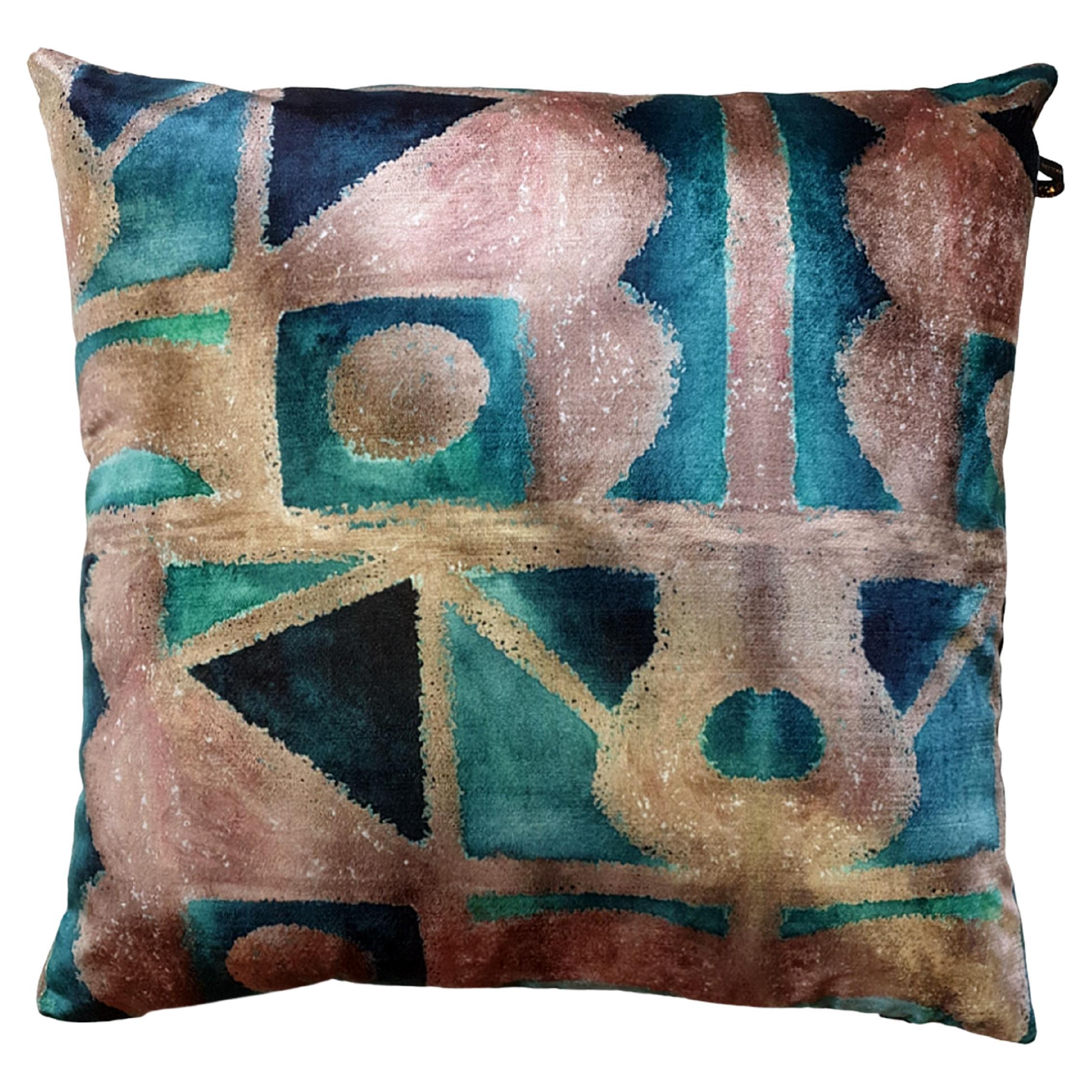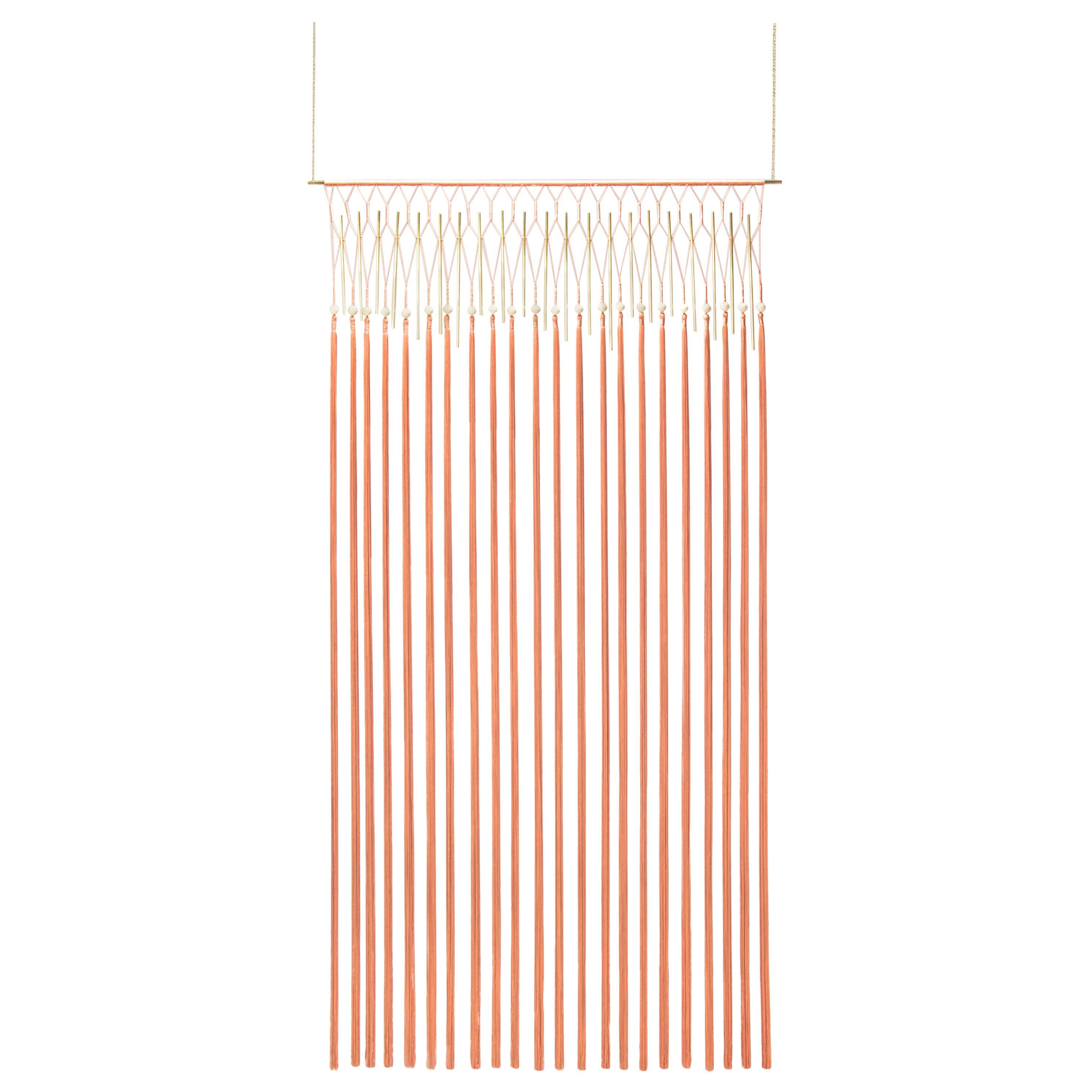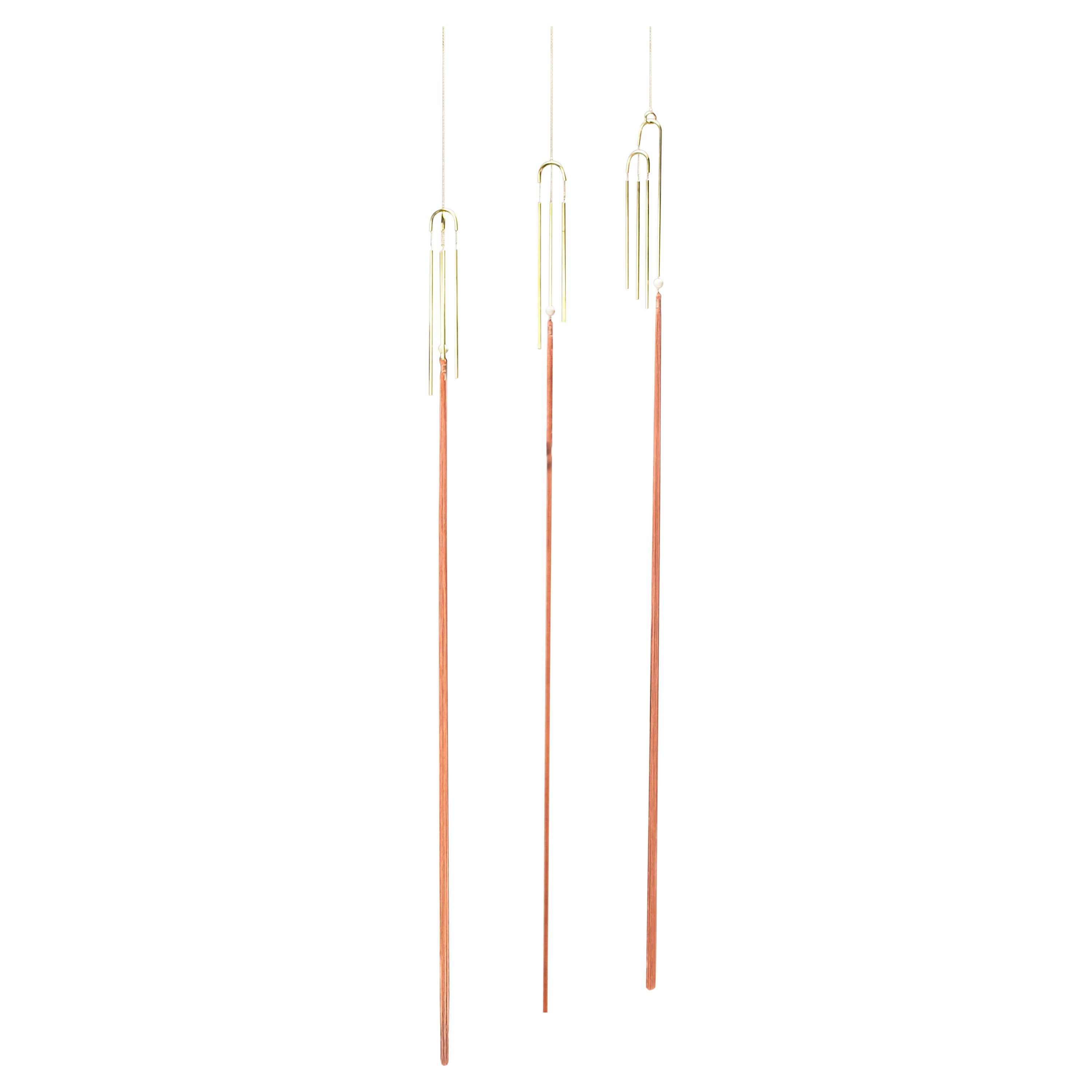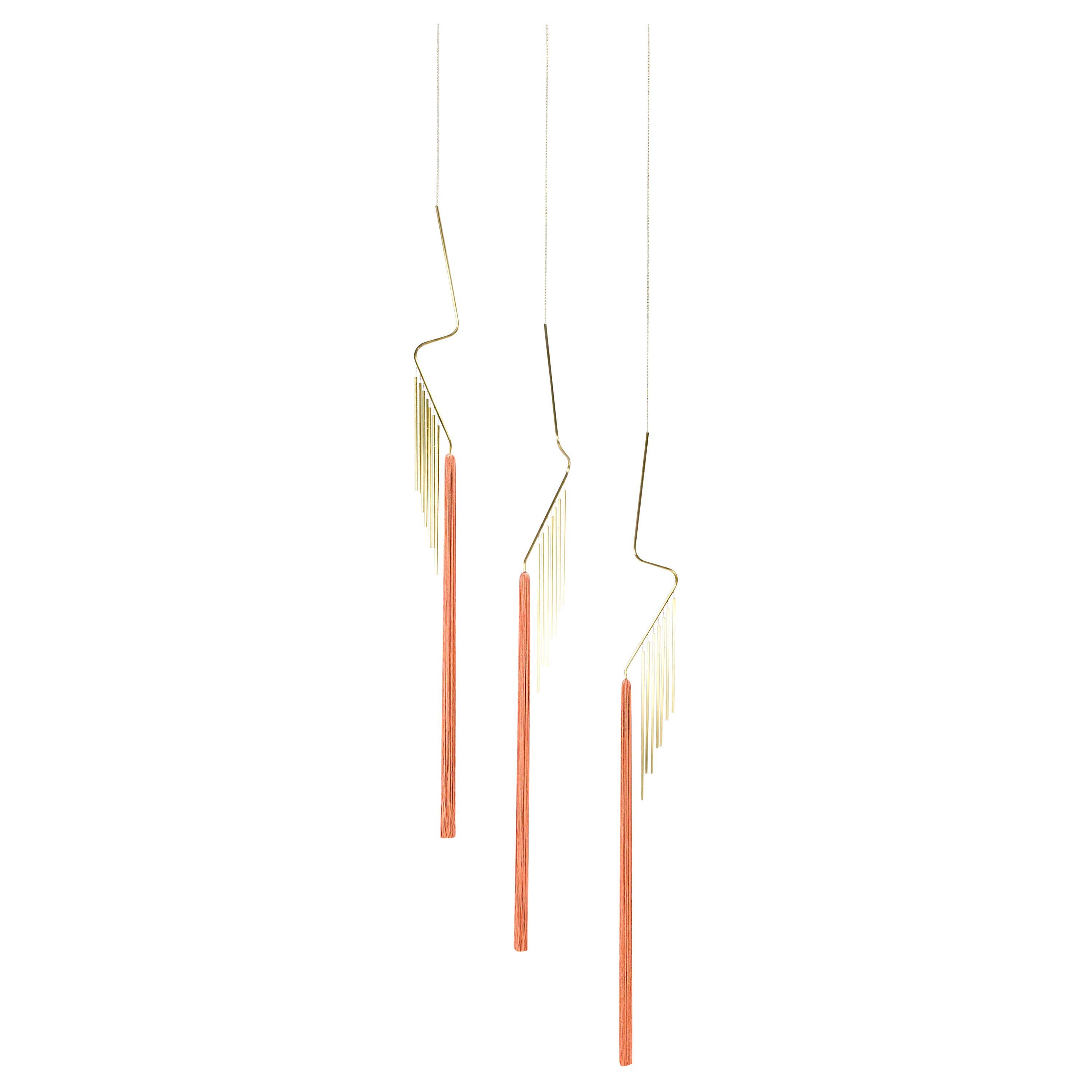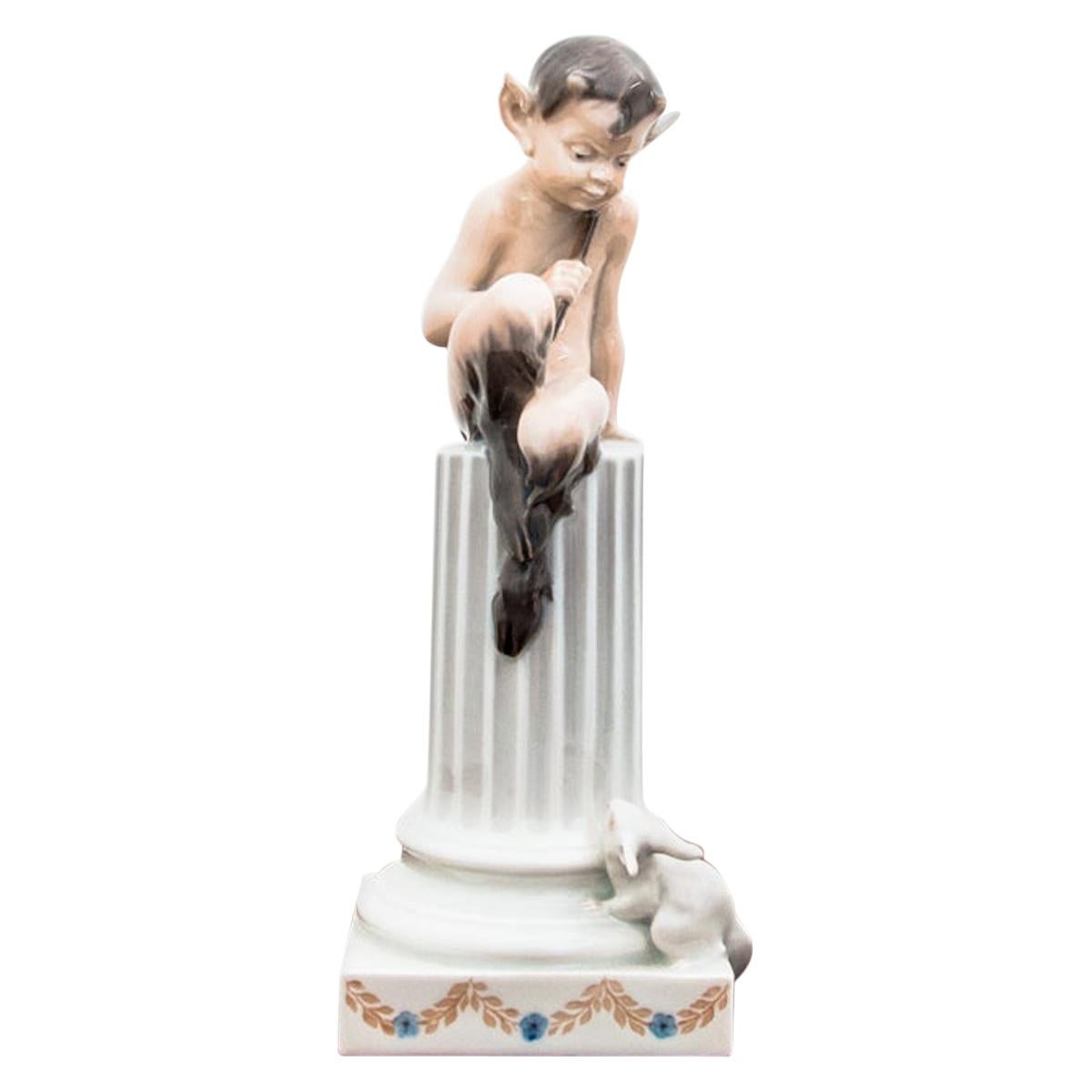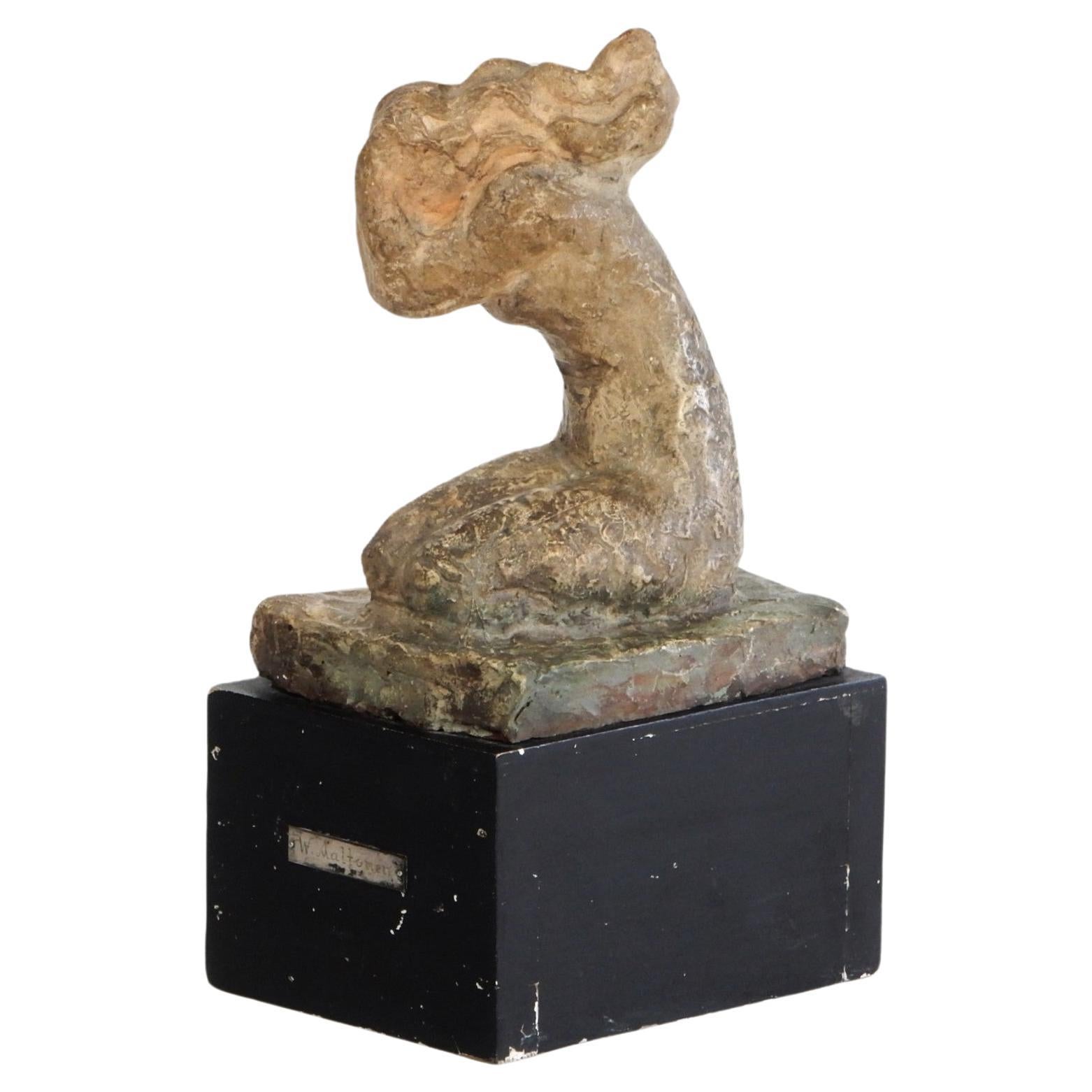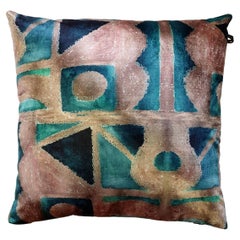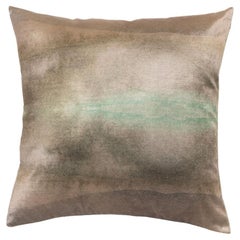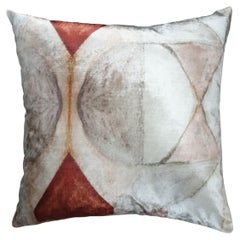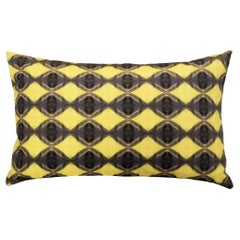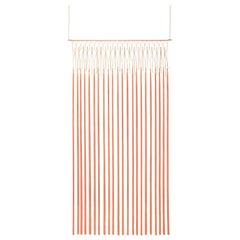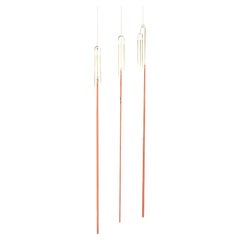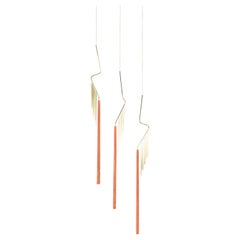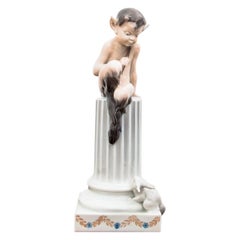Items Similar to EST1966 Art03 Velours
Want more images or videos?
Request additional images or videos from the seller
1 of 8
EST1966 Art03 Velours
About the Item
Chantal Keizer painted a number of Art works and transferred them to fabric in a limited collection.
Of each work a maximum of 50 cushions are available worldwide.
This design is printed on a very luxurious woven velvet with a beautiful shine. The pillow has a luxurious look and feel and is a high quality product.
We send the cushion cover without inner filling. You can purchase a down inner filling on request.
Material and size sleeve: 100% polyster in 35-50 cm.
Chantal Keizer is an experienced designer in the field of interior textiles and wallpapers. She lives in Amsterdam in the Netherlands.
EST1966 by Chantal Keizer is her interior brand. She offers several collections. The Botanic collection with plants found all over the world which she uses for her design. The hand-painted collection. The found Birth feather collection.
- Creator:EST1966 by CHANTAL KEIZER (Designer)
- Dimensions:Height: 5.91 in (15 cm)Width: 19.69 in (50 cm)Depth: 13.78 in (35 cm)
- Style:Modern (In the Style Of)
- Materials and Techniques:
- Place of Origin:
- Period:
- Date of Manufacture:2023
- Production Type:New & Custom(Limited Edition)
- Estimated Production Time:Available Now
- Condition:
- Seller Location:AMSTERDAM, NL
- Reference Number:Seller: ART03-3550-VEL1stDibs: LU8032232830102
About the Seller
5.0
Vetted Professional Seller
Every seller passes strict standards for authenticity and reliability
1stDibs seller since 2023
- ShippingRetrieving quote...Shipping from: Geldrop, Netherlands
- Return Policy
Authenticity Guarantee
In the unlikely event there’s an issue with an item’s authenticity, contact us within 1 year for a full refund. DetailsMoney-Back Guarantee
If your item is not as described, is damaged in transit, or does not arrive, contact us within 7 days for a full refund. Details24-Hour Cancellation
You have a 24-hour grace period in which to reconsider your purchase, with no questions asked.Vetted Professional Sellers
Our world-class sellers must adhere to strict standards for service and quality, maintaining the integrity of our listings.Price-Match Guarantee
If you find that a seller listed the same item for a lower price elsewhere, we’ll match it.Trusted Global Delivery
Our best-in-class carrier network provides specialized shipping options worldwide, including custom delivery.More From This Seller
View AllEST1966 Art03 Velours 50-50 cm
By EST1966 by CHANTAL KEIZER
Located in AMSTERDAM, NL
Chantal Keizer painted a number of Art works and transferred them to fabric in a limited collection. Measures: 50-50 cm.
Of each work a maximum of 50 cushions are available worldwide.
This design is printed on a very luxurious woven velvet with a beautiful shine. The pillow has a luxurious look and feel and is a high quality product.
We send the cushion cover without inner filling. You can purchase a down inner filling on request.
Chantal Keizer is an experienced designer in the field of interior textiles and wallpapers. She lives in Amsterdam in the Netherlands.
EST1966 by Chantel Keizer is her interior brand. She offers several collections. The Botanic collection...
Category
2010s Dutch Modern Pillows and Throws
Materials
Velvet, Polyester
$231 / item
EST1966 WC1 Velours
By EST1966 by CHANTAL KEIZER
Located in AMSTERDAM, NL
EST1966 WC1
Inspiration: handpainted by Chantal Keizer
Material: 100% Polyster
Size 50-50 cm 19-19 Inch
Inner Pillow : down feathers
Chantal Keizer, the founder of EST1966, is an...
Category
2010s Dutch Bohemian Pillows and Throws
Materials
Polyester
$172 / item
EST1966 Dr01 Velours
By EST1966 by CHANTAL KEIZER
Located in AMSTERDAM, NL
Chantal Keizer hand-drawn this design and had it printed on a very luxurious velvet with a beautiful shine. The pillow has a luxurious look and feel. High quality product.
Material a...
Category
2010s Dutch Modern Pillows and Throws
Materials
Polyester
$184 / item
EST1966 No.3Y Velours
By EST1966 by CHANTAL KEIZER
Located in AMSTERDAM, NL
EST1966 No.3L
Inspiration: plant herbarium archive
Special detail; plant was found in 1985 in The Netherlands
Material: 100% Polyster Velours
Size 50-50 cm 19-19 Inch
Inner Pill...
Category
2010s Dutch Bohemian Pillows and Throws
Materials
Polyester
$172 / item
EST1966 No.3L Velours
By EST1966 by CHANTAL KEIZER
Located in AMSTERDAM, NL
EST1966 No.3L
Inspiration: plant herbarium archive
Special detail; plant was found in 1985 in The Netherlands
Material: 100% Polyster Velours
Size 50-50 cm 19-19 Inch
Inner Pill...
Category
2010s Dutch Bohemian Pillows and Throws
Materials
Polyester
$172 / item
EST1966 WC24 Velours
By EST1966 by CHANTAL KEIZER
Located in AMSTERDAM, NL
EST1966 WC24
Inspiration: plant herbarium archive
Special detail; plant was found in 1985 in The Netherlands
Material: 100% Polyster Velours
Size 50-50 cm 19-19 Inch
Inner Pillow : ...
Category
2010s Dutch Bohemian Pillows and Throws
Materials
Polyester
$172 / item
You May Also Like
Melodicware Trio, Musical Portal, Agustina Bottoni
By Agustina Bottoni
Located in Geneve, CH
Designed by Agustina Bottoni
Handcrafted in Italy
Materials: Solid brass with satin finish - rayon fringes
Size: 150cm x 110cm
Chain length: 150cm / 60
Melodicware explores the auditory experience of objects.
These items contains brass chimes of different lengths that play musical notes. Swinging by breeze or touch, they release casual melodies inspired by Debussy. Melodicware not only embellishes a space as a jewel. Through interaction, it comes to life for a fleeting moment.
The lush fringes of the delicate pieces invite to be touched by passers by, becoming thus an unexpected musical instrument.
Agustina Bottoni
Agustina Bottoni is an independent Argentinian designer based in Milan. She works for companies, private clients and self-productions of objects, textiles and furniture.
Graduated at the University of Buenos Aires, and after years of working in the fashion industry, she transferred to Milan, graduating with honors of the MA in product design at the Nuova Accademia di Belle Arti. Following, she collaborated with design studios in Italy and the Netherlands before dedicating since 2015 to her independent design practice.
Exploring the language of everyday objects, these projects tell stories through a gentle use of shape. Agustina’s multicultural experience influences the research of different materials and techniques. They also encourage an emotional perception, considering objects as companions in our lives.
Her works have been exhibited at Triennale Design Museum in Milan, Salone del Mobile, Maison&Objet and others.
Since 2016, she is a co-founder of design collective The Ladies’ Room.
Selected exhibitions
2017: Operæ Design Fair, Lingotto, Turin
2017: Fenoména by The Ladies’ Room, 5Vie Milan, Italy
2017: Ambiente Fair with Il Coccio Design Edition, Frankfurt
2016: W. Women in Italian...
Category
2010s Italian Modern Abstract Sculptures
Materials
Brass
$5,362 / item
Melodicware Trio, Musical Portal, Agustina Bottoni
By Agustina Bottoni
Located in Geneve, CH
Designed by Agustina Bottoni
Handcrafted in Italy
Materials: solid brass with satin finish - rayon fringes
Size 110cm x 22cm / 43” x 9”
Chain length 150cm / 60"
Melodicware ex...
Category
2010s Italian Modern Abstract Sculptures
Materials
Brass
$5,745 / item
Melodicware Trio II, Musical Portal, Agustina Bottoni
By Agustina Bottoni
Located in Geneve, CH
Designed by Agustina Bottoni
Handcrafted in Italy
Materials: solid brass with satin finish, rayon fringes
Size: 150cm x 60cm
Chain length: 150cm / 60
Melodicware explore the auditory experience of objects.
These items contains brass chimes of different lengths that play musical notes. Swinging by breeze or touch, they release casual melodies inspired by Debussy. Melodicware not only embellishes a space as a jewel. Through interaction, it comes to life for a fleeting moment.
The lush fringes of the delicate pieces invite to be touched by passers-by, becoming thus an unexpected musical instrument.
Agustina Bottoni
Agustina Bottoni is an independent Argentinian designer based in Milan. She works for companies, private clients and self-productions of objects, textiles and furniture.
Graduated at the University of Buenos Aires, and after years of working in the fashion industry, she transferred to Milan, graduating with honors of the MA in product design at the Nuova Accademia di Belle Arti. Following, she collaborated with design studios in Italy and the Netherlands before dedicating since 2015 to her independent design practice.
Exploring the language of everyday objects, these projects tell stories through a gentle use of shape. Agustina’s multicultural experience influences the research of different materials and techniques. They also encourage an emotional perception, considering objects as companions in our lives.
Her works have been exhibited at Triennale Design museum in Milan, Salone del Mobile, Maison & Objet and others.
Since 2016, she is a co-founder of design collective The Ladies Room.
Selected exhibitions
2017: Operæ Design Fair, Lingotto, Turin
2017: Fenoména by The Ladies’ Room, 5Vie Milan, Italy
2017: Ambiente Fair with Il Coccio Design Edition, Frankfurt
2016: W. Women in Italian...
Category
2010s Italian Modern Abstract Sculptures
Materials
Brass
Faun Figurine from Royal Copenhagen, 1966
By Royal Copenhagen
Located in Chorzów, PL
This charming Faun figurine, crafted in 1966 by the prestigious Royal Copenhagen, is a fine example of mid-century Danish porcelain artistry. Known for its high-quality craftsmanship...
Category
Vintage 1960s Danish Scandinavian Modern Figurative Sculptures
Materials
Porcelain
$330 Sale Price
25% Off
Modernist Wäinö Aaltonen (1894-1966) "Suru" Sculpture
By Wäinö Aaltonen
Located in Las Vegas, NV
circa 1930's sculpture by modernist sculptor Wäinö Aaltonen of Finland. "Suru".
Ceramic composition mounted on a wooden plinth with name plate.
Rear si...
Category
Mid-20th Century Finnish Art Deco Figurative Sculptures
Materials
Ceramic
Claude Viseux est un peintre, sculpteur et graveur aquafortiste et lithographe
By Claude Viseux
Located in SAINT-SEVER, FR
Claude Viseux est un peintre, sculpteur et graveur aquafortiste et lithographe français né le 3 juillet 1927 à Champagne-sur-Oise et mort le 9 novembre 2008 à Anglet.
'est dans les années 1959-1960 que la sculpture de Claude Viseux, qualifiée de « protéiforme, onirique, fantastique » — ami de Max Ernst, Man Ray, Francis Ponge et Henri Michaux, il ne désavoue pas une parenté avec le Surréalisme9 — se substitue à la peinture, ses premières réalisations étant les objets trouvés en bord de mer qu'il pétrifie dans la cire10 d'une part, les empreintes de pierres et d'algues coulées en bronze d'autre part.
En 1960, il signe le Manifeste des 121 titré « Déclaration sur le droit à l’insoumission dans la guerre d’Algérie ».
En 1961, ses expérimentations s'orientent vers les corps organiques, notamment avec sa série Ostéales constituée d'assemblages d'os fossilisés qu'il patine ou au contraire décape, qu'il visse, scie, assemble et plastifie. Les Concrétudes ou Coulées directes qui suivent en 1961-1962 sont obtenues à partir de coulées de métal en fusion dans le sable, générant des reliefs qu'il soude sur des plaques d'acier. Il va cependant adopter rapidement l'acier inoxydable — qu'il est avec Pol Bury parmi les premiers à employer en sculpture — comme matériau de prédilection. « Il assemble divers rebus industriels — tuyaux, écrous, boulons, cuves… — pour créer des sculptures à mi-chemin du mécanique et du biologique » restitue ainsi Sophie Serra11. Claude Viseux, qui fréquente alors Jean Tinguely, Piotr Kowalski, Michel Guino, Takis et César, confirme : « Ma récupération de l'élément industriel s'élargit vers les aciers spéciaux, avec un essai de vocabulaire formel : des barres, des profilés, des sphères, des rotules, des fonds de cuves, des chambres à combustion de Boeing, des tubulures, des soupapes de navire »9.
« L'artiste entre au cœur de la réalité industrielle, prospecte dans les chaînes de montage de Renault et rôde dans les terrains vaques autour des usines », restitue donc l'encyclopédie Les Muses : « il récupère ferrailles, pièces détachées, débris de voitures, vieux châssis, toute une série d'éléments devenus inutiles. Ils les assemblent, tels quels, sans les modifier. Des créatures agressives ou pathétiques vont surgir de ce combat physique et dialectique que l'artiste livre avec la matière et entrer dans le domaine d'une poétique étrange, surnaturelle5 ». Dans les années 1967-1970, Les « structures actives » en acier inoxydable procèdent ainsi de la production industrielle de série. Elles se répartissent en familles de formes combinatoires composées par addition, soustraction, multiplication, division. Il confirme : « le monde industriel est ma nature, mon bouillon de culture, où je cherche des corps, des familles de corps, des genres, des espèces, dans un aller-retour de l'artificiel au naturel pour confondre les règnes, pour en inventer d'autres selon une géométrie organique qui féconde les différents types de structures, qui aménage la forme concernée par la forme à venir »9. En 1968, Claude Viseux s'installe à la villa Baudran à Arcueil, atelier qu'il conservera jusqu'en 1992.
Si des corps imaginaires naissent ainsi des pièces mécaniques que Claude Viseux emprunte à l'automobile, à l'avion et au bateau, en 1972, « la symétrie de ces formes pures en inox », constate Lydia Harambourg, « l'amène à s'interroger sur la notion d'équilibre instable »12. Ses Instables sont de la sorte exposés à la Biennale de Venise en 1972 où, rappelle encore Lydia Harambourg, une salle entière est consacrée « aux dessins qui reprennent son vocabulaire mécanique identitaire de sphères, toupies, hélices, anneaux, astrolabes et balanciers »12. Les Instables sont de même, en 1973, présentés à la galerie Le Point cardinal à Paris où Claude Viseux avait déjà exposé en 1968 avec Henri Michaux et Joaquin Ferrer...
Category
Vintage 1960s French Abstract Sculptures
Materials
Stainless Steel
Recently Viewed
View AllMore Ways To Browse
Turkish Silk Handmade Woven Rug
Vintage Bentwood Cane Chairs
Vintage Brazilian Lounge
Vintage Pink And Purple Moroccan Rugs
Vintage White Metal Coffee Table
Vinyl Bar Stools
Wicker Sofa And 2 Chairs
Wine Carafe
Wood Bistro Chair
Antique Oushak Ghiordes
Antique Plank Chair
Antique Salt And Pepper
Antique Spanish Rings
Antique Stickley Chairs
Antique Tile Tables
Art Nouveau Glass Coffee Table
Bar Stools Lorenz
Baughman Style Coffee Table
